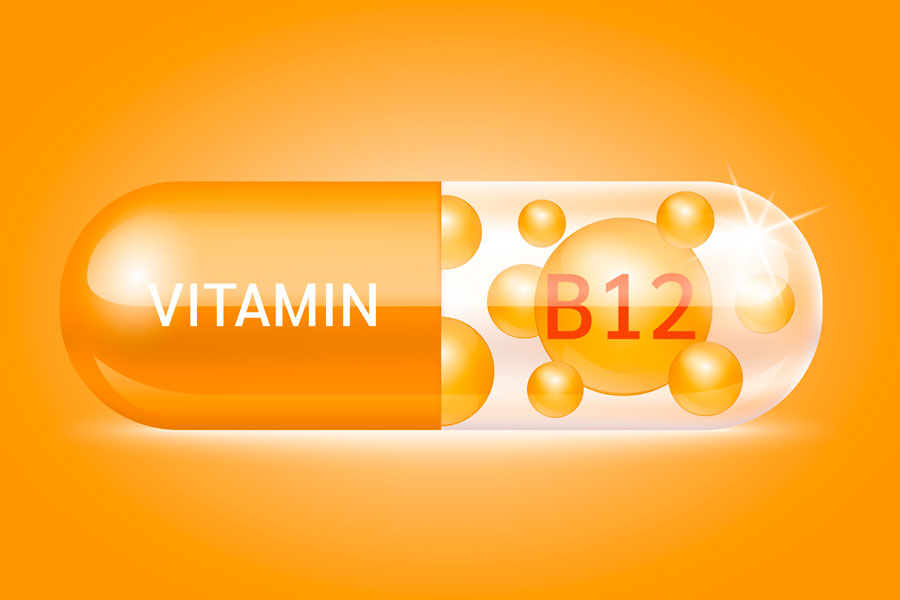
I hope this finds you in good health and high spirits.
A few months ago, I decided to book an appointment with a nutritionist/naturopath. I have been around the world of natural health nearly my whole life, studying food and nutrition at uni in 2001, but I felt like I needed that other perspective. I have had blood taken this week at a particular time in my cycle to dig deeper into my hormones and, at the same time, test for deficiencies in specific vitamins and minerals. It’s good for everyone to go and get these health checks periodically. Certainly, for women who have had babies in the not-so-distant past, they say women can be depleted for up to ten years in extreme cases. I hope to dig deeper into hormonal changes, skin flare-ups and my mental health.
So today, I’d like to shed light on a topic that often goes unnoticed but holds immense importance for our overall well-being – Vitamin B. (this being one of the vitamins I am being tested for)
B vitamins stand out as a group of significant importance for our physical, mental, and emotional health. Comprising a range of distinct vitamins, collectively known as the vitamin B complex, these nutrients are essential for numerous bodily functions, energy production, and maintaining overall health.
The vitamin B complex consists of eight water-soluble vitamins, each with its distinct role in supporting various bodily functions. These vitamins include B1 (thiamine), B2 (riboflavin), B3 (niacin), B5 (pantothenic acid), B6 (pyridoxine), B7 (biotin), B9 (folate), and B12 (cobalamin). While each vitamin has its unique functions, they often work together in metabolic processes, ensuring that our body functions optimally and should be an essential part of everyone’s diet.
Let’s delve into why Vitamin B is crucial and how it benefits us.
- Energy Production: Vitamin B is critical in converting our food into energy. B vitamins; B1 (thiamine), B2 (riboflavin), B3 (niacin), B5 (pantothenic acid), and B6 (pyridoxine), aid in breaking down carbohydrates, fats, and proteins, providing the energy our body needs to function efficiently.
- Nervous System Support: Vitamin B6, B9 (folate), and B12 (cobalamin) are vital for maintaining a healthy nervous system. They help produce neurotransmitters that regulate mood, memory, and cognitive function. Adequate levels of these vitamins can contribute to improved mental clarity and emotional well-being.
- Heart Health: B vitamins are also associated with maintaining a healthy heart. B6, B12, and folate help regulate homocysteine levels, an amino acid linked to an increased risk of heart disease. These vitamins contribute to overall cardiovascular well-being by keeping homocysteine levels in check.
- Cell Growth and Repair: Vitamin B7 (biotin) and B9 (folate) are crucial for DNA synthesis and cell division. They play a pivotal role in tissue growth and repair, making them especially important for pregnant women, growing children, and individuals with rapid cell turnover.
- Healthy Skin and Hair: Biotin (B7) is often touted as the “beauty vitamin” due to its positive impact on skin, hair, and nails. It contributes to healthy skin by supporting fatty acid formation and maintaining proper moisture levels.
- Red Blood Cell Formation: Vitamin B12 and B9 (folate) are essential for the production of red blood cells, which carry oxygen throughout the body.
- Digestive Health: Certain B vitamins, like niacin (B3), aid in maintaining a healthy digestive system by supporting proper digestion and reducing inflammation.
Here’s a general overview of what someone lacking in B vitamins might suffer from, although this list is in no way intended to diagnose. If you have any concerns, always seek advice from your healthcare provider:
- B1 (Thiamine) Deficiency (Beriberi): Symptoms can include fatigue, muscle weakness, nerve tingling or numbness, difficulty walking, confusion, and memory problems.
- B2 (Riboflavin) Deficiency: This can lead to cracked lips, sore throat, redness and swelling of the lining of the mouth and throat, and skin inflammation.
- B3 (Niacin) Deficiency (Pellagra): Symptoms might include skin rashes, diarrhoea, mental confusion, and in severe cases, neurological symptoms.
- B5 (Pantothenic Acid) Deficiency: While rare, it can lead to fatigue, irritability, numbness and tingling in extremities, and difficulty sleeping.
- B6 (Pyridoxine) Deficiency: Symptoms can include skin rashes, cracked lips, anaemia, depression, confusion, and nerve-related symptoms like tingling and numbness.
- B7 (Biotin) Deficiency: This can lead to hair loss, skin rashes, brittle nails, and neurological symptoms in severe cases.
- B9 (Folate) Deficiency: Symptoms might include anaemia, fatigue, weakness, sore tongue, and in pregnant women, an increased risk of neural tube defects in the developing foetus.
- B12 (Cobalamin) Deficiency: This can cause fatigue, weakness, anaemia, neurological symptoms such as tingling in the hands and feet, difficulty walking, and memory problems.

Given the widespread benefits of Vitamin B, ensuring that our diets provide an adequate intake of these vitamins is crucial. Incorporating various nutrient-rich foods such as meats (especially liver), poultry, fish, eggs, raw/grass-fed dairy products, legumes, nuts, seeds, dark leafy greens, and nutritional yeast can help us meet our Vitamin B needs. Most do not reach this required amount, and many will need to supplement, especially those following a vegan or vegetarian diet.
Vitamin B is a powerhouse of health benefits, contributing to energy production, nervous system support, cell health, heart health, and more. Incorporating a wide range of B vitamin-rich foods into your diet can go a long way in promoting your overall well-being. Remember, a balanced diet is the cornerstone of a healthy lifestyle, and Vitamin B is essential to that balance.
To support your B vitamin intake, here are some recommended products:
Liposomal B4Health™ – A liquid B vitamin product using liposomal delivery for fast and effective absorption, in an easy-to-use pump dispenser. It has a range of B vitamins, including Thiamine (B1), Riboflavin (B2), Niacin (B3), B6, and Methyl Folate, for best absorption, alongside other essential nutrients of vitamins D3, C and Selenium. 120ml (approx.30 servings). Vegan.
Ionic Vitamin B12 – A rich, concentrated liquid dietary supplement that provides B12 in an ionic, bioavailable form for fast and effective absorption. 59ml (approx. 59 servings). Vegan.
Vitamin B Bundle – Get B4Health and Ionic B12 together for 20% off
Wishing you good health and happiness.
Warm regards,
Olivia Redfern




